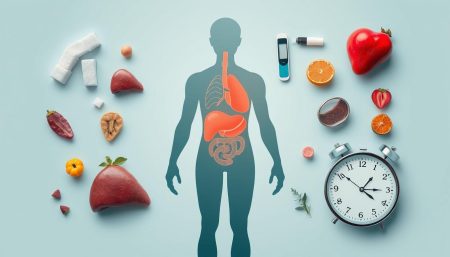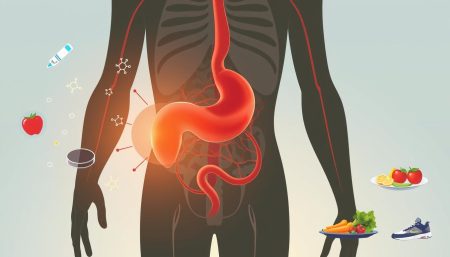Understanding diabetes mellitus is key in a world where it’s becoming more common. This article aims to explain what is diabetes mellitus and its different types. It also looks at how it affects global health. With a good grasp of the condition, people can tackle management and prevention with confidence.
It’s important to know the differences between Type 1 and Type 2 diabetes. Also, understanding gestational diabetes is vital. Raising awareness and understanding diabetes mellitus is essential. It can change how we face this ongoing health issue.
This guide will help readers understand diabetes mellitus better. They’ll learn what to look out for and how to adapt if needed. Let’s start the journey to demystify diabetes.
Exploring the Diabetes Mellitus Meaning and Significance
We explore the complex meaning and importance of diabetes mellitus. We aim to understand its personal and global effects.
What is Diabetes Mellitus?
The diabetes mellitus meaning refers to a group of metabolic diseases. These diseases are marked by high blood sugar levels for a long time. This illness affects not just personal health but also global healthcare systems.
The Epidemiology and Impact of Diabetes Mellitus
Looking closely at the diabetes mellitus overview, we see a worrying rise in cases worldwide. It’s a major cause of death globally. This puts a huge strain on healthcare systems, making it urgent to address.
| Year | Global Diabetes Prevalence | U.S. Diabetes Prevalence |
|---|---|---|
| 2010 | 285 million | 25.8 million |
| 2015 | 415 million | 30.3 million |
| 2020 | 463 million | 34.2 million |
The table shows a clear increase in diabetes cases globally and in the U.S. This highlights the diabetes mellitus significance as a major public health issue. It also shows the need for better healthcare policies and systems.
Comprehensive Diabetes Mellitus Definition and Interpretation
The diabetes mellitus definition covers a range of metabolic diseases. These diseases are marked by high blood sugar levels for a long time. This broad view includes both formal medical terms and simpler explanations. It helps everyone, no matter their medical knowledge, to understand the key diabetes mellitus details.
From a medical view, diabetes mellitus happens when the pancreas can’t make enough insulin. Or, when the body’s cells don’t use insulin well. This results in too much glucose in the blood, leading to health problems over time.
Seeing diabetes mellitus in simple terms means knowing its signs and effects. Signs like too much thirst, needing to pee a lot, feeling very tired, and blurry vision can mean diabetes. These signs need a doctor’s check-up to see if you have it.
| Aspect | Medical Definition | Layman’s Interpretation |
|---|---|---|
| Core Problem | Insufficient insulin production/response | The body’s ineffective use of insulin |
| Key Symptoms | Polyuria, Polydipsia, Polyphagia | Frequent urination, excessive thirst, increased hunger |
| Long-term Risks | Cardiovascular disease, neuropathy, nephropathy | Heart problems, nerve damage, kidney disease |
This section offers a two-way look at the diabetes mellitus definition. It mixes complex medical terms with simple language. This makes the important diabetes mellitus details clear to everyone. Knowing these points is key for catching diabetes early and managing it well.
The Pathophysiology Behind Diabetes Mellitus
Understanding diabetes mellitus is key to better managing glucose levels. The problem lies in how the body processes glucose because of insulin issues. This affects millions globally, making it a complex condition.
How the Body Processes Glucose
Healthy people break down carbs into glucose, their main energy source. This glucose then enters the bloodstream. Insulin, made by the pancreas, helps move glucose into cells for energy or storage.
The Role of Insulin in Glucose Management
In diabetes, insulin doesn’t work right. Type 1 diabetes means little insulin is made, so insulin shots are needed. Type 2 diabetes makes cells resistant to insulin, so more insulin is needed.
This insulin problem requires careful blood sugar management. It helps avoid diabetes complications.
Diabetes Mellitus Overview: Symptoms and Diagnosis
Knowing the early signs of diabetes mellitus is key for early treatment. This part talks about the diabetes mellitus symptoms you might see and how to get a correct diabetes mellitus diagnosis.
Recognizing the Signs and Symptoms of Diabetes
Diabetes symptoms can be hard to spot because they are often mild. Early signs include feeling very thirsty and hungry, needing to pee a lot, losing weight without trying, and feeling tired. These signs might mean your blood sugar is too high.
If you notice these changes, talk to your doctor. They can help figure out if these symptoms mean you have diabetes. Learn more about these signs at this link.
The Diagnostic Criteria for Diabetes Mellitus
Doctors use certain tests to diagnose diabetes. They check your blood sugar levels. Tests like the fasting plasma glucose test, the oral glucose tolerance test, and the A1C test are used. These tests show how well your body handles blood sugar.
Diagnosing diabetes involves specific criteria. For example, an A1C level of 6.5% or higher is a sign. So is a fasting blood glucose of 126 mg/dL or more. Or, glucose levels of 200 mg/dL or higher during an oral glucose tolerance test.
Spotting diabetes symptoms early and getting tested on time is very important. It helps manage the disease well and lowers the risk of serious problems. Knowing about diabetes mellitus symptoms and how to get tested can greatly improve your health.
Types of Diabetes Mellitus: A Detailed Breakdown
Diabetes mellitus is a group of metabolic disorders with high blood glucose levels. This breakdown looks at type 1, type 2, and gestational diabetes. It covers their causes, management, and health effects.
Type 1 Diabetes Mellitus: Causes and Management
Type 1 diabetes is an autoimmune condition where the body attacks insulin-producing cells. It often starts in childhood or early adulthood. Treatment includes insulin therapy, diet changes, and exercise to keep blood sugar normal.
Type 2 Diabetes Mellitus: Lifestyle Factors and Treatment
Type 2 diabetes is linked to lifestyle and genetics. It happens when the body can’t use insulin well or when the pancreas doesn’t make enough. Managing it involves diet, exercise, and medication to improve insulin use.
Gestational Diabetes: Risks and Monitoring
Gestational diabetes happens during pregnancy and can harm both mom and baby. It usually goes away after birth but raises the risk of type 2 diabetes later. Managing it includes monitoring blood sugar, eating well, and staying active.
| Diabetes Type | Key Characteristics | Management Strategies |
|---|---|---|
| Type 1 Diabetes Mellitus | Autoimmune destruction of beta cells | Insulin therapy, carb counting, frequent blood glucose monitoring |
| Type 2 Diabetes Mellitus | Insulin resistance, often associated with obesity | Dietary changes, physical activity, medications |
| Gestational Diabetes | High blood glucose during pregnancy | Diet modification, blood glucose monitoring, insulin if needed |
Understanding Diabetes Mellitus: Risk Factors and Prevention
Diabetes mellitus is a chronic disease that affects many people. It is caused by genetics and lifestyle choices. Knowing about these factors helps us prevent diabetes.
Genetic Predisposition and Diabetes
Studies show that some genes increase the risk of diabetes. Family history is a big factor. This means genetic tests can help prevent diabetes.
Lifestyle Choices and Prevention Strategies
Research shows that changing your lifestyle can prevent diabetes. Even if you’re at high risk, you can lower your chances. This includes exercising regularly, eating well, and not gaining too much weight.
| Lifestyle Factor | Impact on Diabetes Risk |
|---|---|
| Regular Exercise | Decreases insulin resistance, improves weight management |
| Healthy Diet | Reduces blood sugar spikes, lowers fat intake |
| Weight Control | Minimizes stress on bodily systems, reduces risk of Type 2 Diabetes |
Knowing about diabetes mellitus risk factors is key to preventing it. By using genetic tests and making lifestyle changes, we can fight diabetes. This helps people live healthier lives.
Navigating Through Diabetes Mellitus Details: Complications
It’s key to know about diabetes mellitus complications for good diabetes management. This part talks about common health problems that can happen if diabetes isn’t controlled right. It also shares ways to lower these risks.
Managing diabetes well means checking blood sugar often, eating right, staying active, and taking meds as told. If you don’t manage diabetes well, serious problems can happen. These can hurt your quality of life and even increase your chance of dying.
- Cardiovascular Disease
- Nerve Damage (Neuropathy)
- Kidney Damage (Nephropathy)
- Eye Damage (Retinopathy)
- Foot Damage
These complications can really hurt and change your life a lot. For instance, nerve damage can make your limbs feel numb. This can cause unnoticed injuries to get worse or lead to infections.
It’s very important to manage diabetes well to avoid these problems. This includes:
- Regular health checks and screening for early signs of complications.
- Sticking to a diabetes care plan made by healthcare professionals.
- Learning to spot symptoms of complications early.
By knowing and using good management strategies, people with diabetes can live long, healthy lives. They can also lower the chance of serious problems.
Diabetes Mellitus Info: Diet and Nutrition Management
Managing diabetes diet management is key to controlling diabetes mellitus. Knowing how food affects blood sugar is vital. We’ll explore a diabetes-friendly meal plan and how carbs impact glucose levels.
Creating a Diabetes-Friendly Meal Plan
It’s important to follow dietary guidelines that meet the body’s needs. A balanced meal plan helps keep blood sugar levels stable. This reduces the risk of diabetes complications.
- Include a variety of nutrients in each meal, focusing on fiber-rich fruits, vegetables, and whole grains.
- Opt for lean proteins and healthy fats to support overall health without spiking blood sugar.
- Plan meals evenly throughout the day to prevent sudden glucose spikes.
The Role of Carbohydrates and Sugar Intake
Carbohydrates greatly affect blood sugar levels and are a key part of diabetes diet management. It’s important to know the type and amount of carbs you eat.
- Choose complex carbohydrates, like whole grains, over simple carbohydrates, such as sugar.
- Moderate the amount of carbs per meal to ensure stable blood sugar levels throughout the day.
The table below shows high and low glycemic index foods. It helps you make better carb choices:
| Food Items | Glycemic Index Category |
|---|---|
| Oatmeal | Low |
| White Bread | High |
| Brown Rice | Medium |
| Apple | Low |
| Potato | High |
Unveiling Diabetes Mellitus Basics for New Patients
If you’ve just been told you have diabetes mellitus, it’s key to get the basics right. This part will cover the diabetes mellitus basics and offer tips on adapting to diabetes in daily life.
What New Patients Should Know
Understanding diabetes mellitus means knowing how your body handles sugar and insulin. It’s also about how not having enough insulin can harm your health. Knowing the different types of diabetes, their causes, and symptoms is the first step to managing it well.
Adapting to Life with Diabetes
Living with diabetes means making big changes in your life. You’ll need to change your diet, exercise more, and check your blood sugar often. Here are some tips to help you make these changes smoothly.
- Educate Yourself: Keep learning about diabetes mellitus basics from trusted sources. This will help you know the best ways to manage your condition.
- Dietary Changes: Eat a diet full of fiber and avoid sugary and fatty foods. This helps keep your blood sugar in check.
- Regular Exercise: Try to do at least 30 minutes of moderate exercise, like brisk walking, every day. It helps your body use insulin better.
- Monitor Your Health: Check your blood sugar often and talk to your doctor. They can help adjust your treatment plan if needed.
Diabetes Mellitus Explanation: Medication and Treatment Options
Managing diabetes mellitus involves understanding various treatment strategies. This includes using diabetes medication and insulin therapy. These methods help control blood glucose levels, allowing patients to live healthier lives despite their condition.
Oral Medications for Diabetes Control
Oral diabetes medications are key in managing type 2 diabetes. They help keep blood glucose levels in check. Different drugs work in different ways. For example, Sulfonylureas make the pancreas produce more insulin. Metformin makes cells more responsive to insulin.
By combining these medications, people can manage their blood glucose effectively. This might prevent the need for insulin therapy.
Insulin Therapy and Administration
For those with type 1 diabetes, insulin therapy is essential. It involves giving insulin injections to control blood sugar. There are various ways to administer insulin, like insulin pens, pumps, and jets.
| Therapy Type | Typical Usage | Benefits |
|---|---|---|
| Basal Insulin | Nightly or Once Daily | Controls glucose between meals and overnight |
| Bolus Insulin | Before meals | Manages blood sugar spikes after eating |
| Mixed Insulin | Twice daily | Combination of basal and bolus effects |
Lifestyle Adaptations for Individuals with Diabetes Mellitus
Living with diabetes means making big changes in your daily life. But, with the right steps, you can live well. Experts say making lasting changes is key to keeping your blood sugar stable and your health good.
By planning your meals, exercise, and checking your blood sugar, you can change your life for the better.
- Regular physical activity: Regular exercise helps control blood sugar.
- Nutritional planning: Eating balanced meals helps keep blood sugar in check.
- Consistent monitoring: Tracking your glucose levels shows how food and activity affect you.
Changing your lifestyle not only controls diabetes but also boosts your overall health. Support from family, friends, and groups is key. Also, talking to your healthcare team helps make changes that fit you best.
| Activity | Benefit |
|---|---|
| Moderate Exercise | Improves insulin sensitivity, lowers blood sugar |
| Healthy Eating | Stabilizes blood sugar levels, reduces diabetes complications |
| Regular Blood Glucose Testing | Helps in timely management adjustments |
Managing diabetes is not just about medicine. It’s also about how you live your life. When you make these lifestyle changes, they greatly improve your life with diabetes. They help you live a healthier, more balanced life every day.
Emerging Research and Future Directions in Diabetes Mellitus Treatment
As diabetes research moves forward, new discoveries are leading to better future diabetes treatment options. This part looks at the latest in diabetes care tech and new medicines. These could change how we manage diabetes in the future.
Innovations in Diabetes Care Technology
New tech in diabetes care is changing lives, making life easier for patients and improving how we manage diabetes. Advances include better monitoring systems and insulin delivery devices. For example, continuous glucose monitoring (CGM) systems show blood sugar levels in real-time. This helps patients make quick and accurate changes to their treatment.
Advancements in Diabetes Medication and Therapy
The American Journal of Medicine reports good news on diabetes treatments. New medicines and therapies offer better control and fewer side effects. These breakthroughs are key for daily management and could lead to cures for diabetes.
| Technology | Description | Impact on Treatment |
|---|---|---|
| Advanced CGM Devices | Real-time glucose monitoring without the need for finger-pricking. | Enhances treatment accuracy and patient comfort. |
| Next-Gen Insulin Pumps | Automated insulin delivery with real-time adjustments. | Improves glycemic control and reduces user burden. |
| Artificial Pancreas Systems | Integrated CGM and insulin pump that mimics the biological pancreas. | Targets optimal glucose levels, minimizes risks of complications. |
The world of diabetes research and future diabetes treatment is always changing. New tech and medicines are making diabetes care easier and less invasive for millions around the globe.
Diabetes Mellitus and Mental Health: Coping with Chronic Illness
The link between diabetes mellitus mental health issues is a key topic in the Psychological Health and Diabetes report. People with diabetes often face big emotional and psychological challenges. The need to constantly check blood sugar, deal with possible complications, and stick to a strict diet can cause stress, anxiety, and depression.
It’s important to understand how diabetes affects mental health. This is true for both patients and their caregivers.
Managing diabetes is not just about physical health. It also needs a plan that includes mental health support. The journal Psychotherapy and Psychosomatics talks about ways to handle the mental stress of chronic illnesses like diabetes. These include mindfulness, cognitive behavioral therapy, and stress-reduction exercises.
These methods can improve emotional well-being. This makes it easier to manage diabetes every day.
For those dealing with diabetes’s mental health effects, having a supportive network is key. This network should include healthcare providers, family, and friends. Regular mental health check-ups, counseling services, and education on coping strategies are essential.
Creating a strong support system helps manage diabetes well. It also improves life quality for those affected. This approach leads to a healthier mindset, even with chronic illness challenges.
FAQ
Q: What is Diabetes Mellitus?
A: Diabetes mellitus is a long-term health issue. It happens when the body can’t make or use insulin right. This hormone helps control blood sugar levels.
Q: How does the body process glucose?
A: The body breaks down carbs into sugar, which goes into the blood. Insulin helps cells use this sugar for energy. But, people with diabetes can’t do this well.
Q: What are the main types of Diabetes Mellitus?
A: There are mainly three types of diabetes. Type 1 is when the body can’t make insulin. Type 2 is when it can’t use insulin well. Gestational diabetes happens during pregnancy and usually goes away after.
Q: What are the symptoms of Diabetes Mellitus?
A: Symptoms include feeling very thirsty and needing to pee a lot. You might also feel tired, see things less clearly, and have slow-healing sores. Some people lose weight without trying.
Q: How is Diabetes Mellitus diagnosed?
A: Doctors use tests like the fasting blood sugar test and the glucose tolerance test. These tests check blood sugar levels.
Q: What are the risk factors for developing Diabetes Mellitus?
A: Risk factors include family history, age, being overweight, and not being active. A bad diet and previous pregnancy diabetes also increase risk.
Q: Can Diabetes Mellitus lead to other health complications?
A: Yes, if diabetes isn’t controlled, it can cause serious problems. These include heart disease, stroke, kidney failure, blindness, nerve damage, and amputation.
Q: What are some lifestyle changes that can help manage Diabetes Mellitus?
A: Changes include eating right, staying at a healthy weight, exercising, checking blood sugar, and not smoking.
Q: How important is diet in managing Diabetes Mellitus?
A: Diet is very important for managing diabetes. Eating a balanced diet with the right amounts of carbs, fats, and proteins is key. It’s also important to limit processed sugars.
Q: What are some common medications used to treat Diabetes Mellitus?
A: Common treatments include oral medications like metformin for Type 2 diabetes. Type 1 diabetes often requires insulin therapy. Newer drugs like SGLT2 inhibitors are also used.
Q: Can Diabetes Mellitus be cured?
A: There’s no cure for diabetes yet. But, it can be managed with the right treatment, diet, and lifestyle. Research might lead to new treatments in the future.
Q: What mental health resources are available for individuals with Diabetes Mellitus?
A: There are counseling, support groups, and therapy for diabetes-related stress. Many resources are online or through local healthcare providers.
Q: What recent advances have been made in Diabetes Mellitus treatment?
A: New advances include continuous glucose monitoring systems and insulin pumps. There are also new medications that help control blood sugar better with fewer side effects.


















